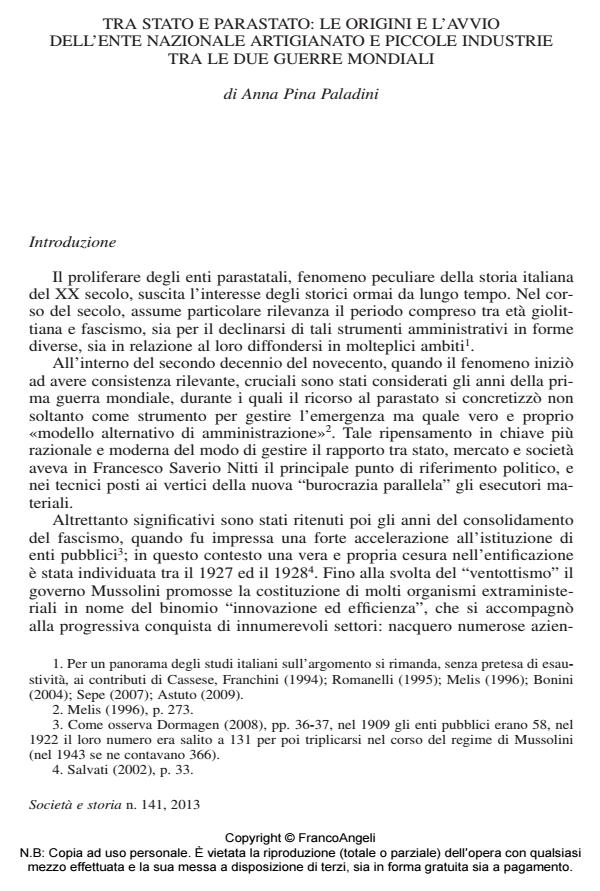State and bureaucratic development: the origin and the beginnings of the "Public agency for handycraft and small industries" (‘ENAPI’) between the two world wars
Journal title SOCIETÀ E STORIA
Author/s Anna Paladini
Publishing Year 2013 Issue 2013/141
Language Italian Pages 36 P. 495-530 File size 714 KB
DOI 10.3280/SS2013-141004
DOI is like a bar code for intellectual property: to have more infomation
click here
Below, you can see the article first page
If you want to buy this article in PDF format, you can do it, following the instructions to buy download credits

FrancoAngeli is member of Publishers International Linking Association, Inc (PILA), a not-for-profit association which run the CrossRef service enabling links to and from online scholarly content.
Through the history of ENAPI, the article analyses the evolution of the public sector from Giolitti to fascism; it focuses on the relationship of sectorial public agencies to corporatism and looks into the role of State and Second bureaucracy (‘parastato’) in the development of small industries between the two world wars. The author follows the gradual change, completed in 1928, from Nitti’s effort to modernize this sector and to the integration of the ENAPI in the fascist economic choices and in the strategy for achieving consensus. During the Thirties, this public agency, controlled by the Confederation of Industry and the Confederation of Handycraft, became a corporative body. While this attempt failed to achieve the development of the two sectors, it was successful in the social field, because it fostered the State’s interest in the small manufacturers.
Keywords: Small industries; sectorial public agencies; Nitti, Luzzatti; 1928 ("ventottismo"); corporatism.
- La storia economica contemporanea in quaranta anni di "Società e storia" Marco Doria, in SOCIETÀ E STORIA 178/2023 pp.783
DOI: 10.3280/SS2022-178007
Anna Paladini, Tra stato e parastato: le origini e l’avvio dell’ente nazionale artigianato e piccole industrie tra le due guerre mondiali in "SOCIETÀ E STORIA " 141/2013, pp 495-530, DOI: 10.3280/SS2013-141004